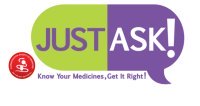You are here
Ms Lynda Tan has been nominated as a Shining Star in the PSS initiative to showcase our role models in community pharmacy.

Lynda Tan, Patient Care Pharmacist, Guardian Hougang 205
1. Why did you choose pharmacy as your profession?
I see healthcare as very meaningful work, and I want to help (sick) people get well. Since drug therapy remains the key cornerstone in treatment of many diseases, and pharmacists are drug experts involved in most areas of drug development, the pharmacy profession offers a wide variety of career opportunities well worth my exploring.
2. Why did you choose to be a community pharmacist?
I like to work directly with patients and I think that community pharmacists are well-placed to reach out to the public. We are very accessible to the general public, from the heartland to the city centre. The retail setting also allows more time for me to interact with my customers so that I can better understand and address their needs accordingly.
3. What motivated you to be where you are today?
When I remind myself about why I want to be a pharmacist in the first place – to help people, that keeps me going. I feel good when I make a difference in someone’s life. It could be just a simple act of dressing a wound or helping to select a proper knee support. And people know and appreciate what I do, which is really heartening, especially when the trust builds and relationships are fostered.
4. What is your advice for your fellow pharmacists and for people who are considering this career?
Being a pharmacist means lifelong learning. The learning should not stop upon graduation, nor after passing out from pre-registration training. You have got to keep learning new things, keep abreast of the latest medical updates, and this is so that you can provide the best patient care for those in need.
5. Given that Singapore will be experiencing one in three citizens aged 65 and above by 2030, how do you think pharmacists can contribute to the healthcare of this group of people?
Geriatrics commonly encounter issues such as polypharmacy, drug illiteracy and are more susceptible to side effects of medications. Through health services such as medication reviews and health screening services, pharmacists definitely have a big role to play in the chronic disease management of the elderly population.
6. What is the most memorable moment in your pharmacy career?
It was the time when we were officially ‘sworn in as pharmacist’ during pre-registration graduation ceremony. During the moment of reciting the pledge, there was a sense of pride and affirmation that I now stand as a full-fledged pharmacist, and it also marked the start of a very exciting career ahead.
7. Describe your career progression path.
I completed my pre-registration training at Tan Tock Seng Hospital under the guidance of many knowledgeable nurturing pharmacists. I worked there as an inpatient pharmacist for another one and a half years before joining Guardian as a retail pharmacist. Besides the daily in-store operations, I am now taking up more projects, including smoking cessation, home-based medication review, and precepting Year 2 NUS students and pre-registration pharmacists. Moving ahead, there are opportunities to expand my portfolio to head more outreach projects and be involved in training and development of the pre-registration pharmacists.
8. Can you describe a typical day at work?
Once on the shop floor, the main priority is to attend to walk-in customers, who are mostly seeking help (advice and/or medications) for their minor ailments. Some customers also walk in for health screening and/or smoking cessation counselling. Since this is a retail pharmacy setting, there are also operations duties to be carried out, including ordering and topping up of medications. It is also important to check email correspondences for updates on specific projects, and matters communicated from the headquarters.
9. What do you think are the important skills that a pharmacist needs to be equipped?
A pharmacist needs to possess good listening, analytical and communication skills. You need to listen well to know what are your patients’ problems exactly; you need to be analytical to come up with the best pharmaceutical care plan for your patient. It is also crucial to communicate all these information in a manner that is comprehensible to your patients. In addition, compassion and passion are very important. You need these to keep you going.
10. What is your wish list to your patients/ the public who comes to you?
When in doubt (about your medications), JUST ASK! We (pharmacists) are here to help, but YOU need to take charge of YOUR OWN health.


Bouquets for Ms Lynda Tan
“When I approached Lynda for help regarding how to use Replax prescribed by my doctor, Lynda not only gave me the information, but she also expressed her care and concern for me by asking me for my phone number so that she could find out how I was doing after a day or two. Her action touches my heart.” – Mdm Elizabeth Ong
“Lynda is very professional in providing advice and her explanation is very clear. She is courteous and serves with cheerful disposition.” – Mr Soh Kee Pew
“Lynda is a gem - of the times I visited the outlet she has been greeting everyone with a smile. She can even remember me by my last name. Lynda also gives very good and sincere advice when I asked her for alternate medication. Really makes the visit to the pharmacist a pleasant one!” – Mr Sherman Wong
 Shining Stars is a PSS initiative to showcase our role models in community pharmacy
Shining Stars is a PSS initiative to showcase our role models in community pharmacy


